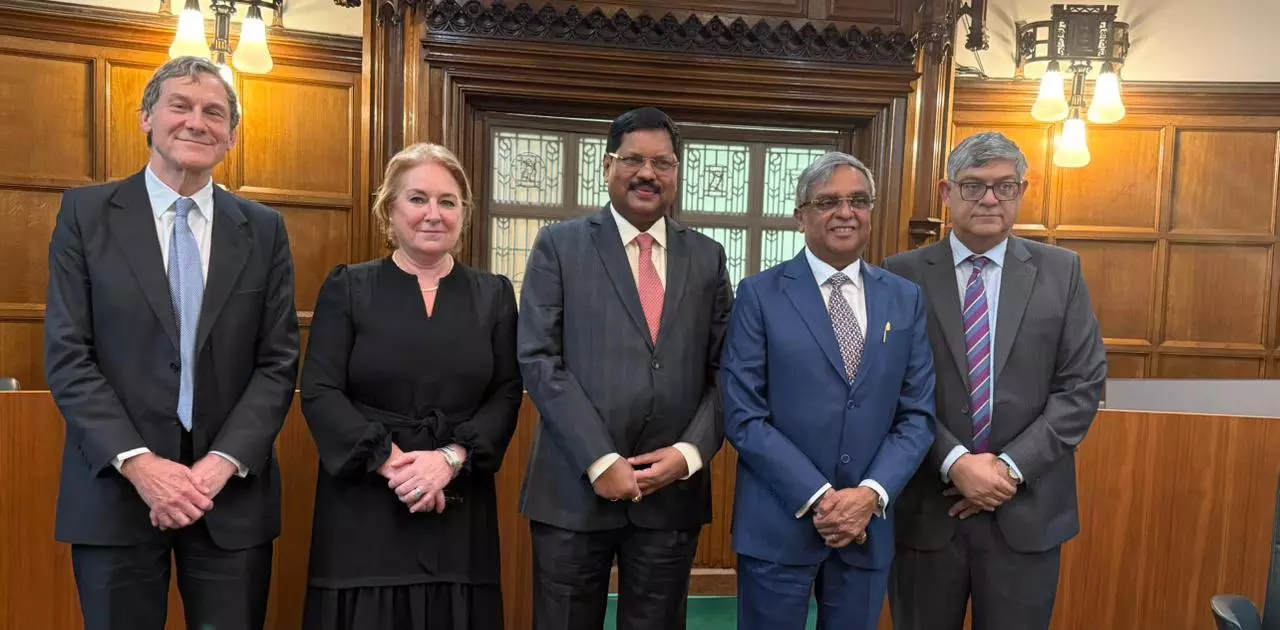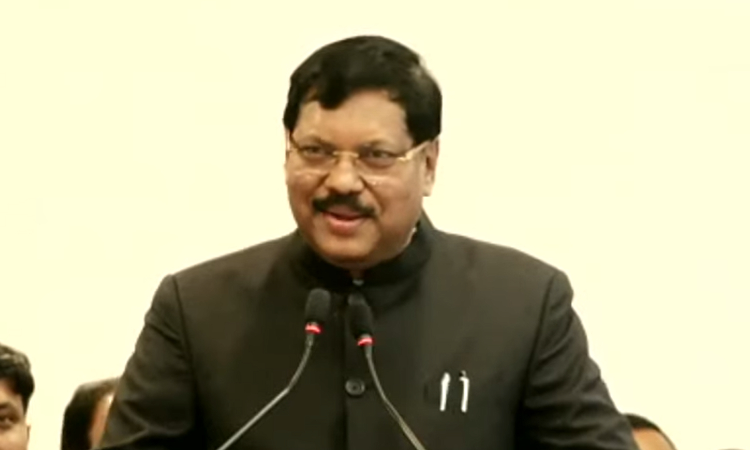- Home
- /
- Top Stories
- /
- Judges Accepting Govt Posts Or...
Judges Accepting Govt Posts Or Contesting Elections Soon After Retirement Undermines Public Trust In Judiciary : CJI BR Gavai
LIVELAW NEWS NETWORK
4 Jun 2025 8:42 AM IST
CJI said that he has taken a pledge to refuse post-retirement government appointments.
Chief Justice of India BR Gavai has expressed concern over judges accepting government appointments or contesting elections soon after retirement, stating that such practices raise serious ethical questions and undermine public confidence in the judiciary.Speaking at a roundtable discussion at the Supreme Court of the United Kingdom, CJI Gavai observed that post-retirement engagements of...
Chief Justice of India BR Gavai has expressed concern over judges accepting government appointments or contesting elections soon after retirement, stating that such practices raise serious ethical questions and undermine public confidence in the judiciary.
Speaking at a roundtable discussion at the Supreme Court of the United Kingdom, CJI Gavai observed that post-retirement engagements of this nature can create a perception that judicial decisions were influenced by expectations of future political or governmental roles.CJI Gavai said :
"If a judge takes up another appointment with the government immediately after retirement, or resigns from the bench to contest elections, it raises significant ethical concerns and invites public scrutiny. A judge contesting an election for a political office can lead to doubts regarding the independence and impartiality of the judiciary, as it may be seen as a conflict of interest or as an attempt to gain favour with the government. The timing and nature of such post-retirement engagements could undermine the public's trust in the judiciary's integrity, as it could create a perception that judicial decisions were influenced by the prospect of future government appointments or political involvement."
In the light of such concerns, CJI Gavai said that he and many of his colleagues have publicly pledged not to accept any post-retirement roles or positions from the government. "This commitment is an effort to preserve the credibility and independence of the judiciary," CJI added, speaking on the topic “Maintaining Judicial Legitimacy and Public Confidence”.
In his address, CJI underscored that the judiciary must not only dispense justice, but also be seen as an institution that deserves to hold truth to power. Judiciary derives its legitimacy from the public trust, which has to be earned by upholding constitutional values with independence, integrity, and impartiality.
Solutions to the collegium system's flaws must not come at the cost of judicial independence
Separation of powers, as envisaged by Article 50 of the Constitution of India, and an independent appointment process are crucial considerations in the public perception of judicial independence. In this context, CJI elaborated upon the collegium system. While acknowledging that the collegium system is not without criticisms, he emphasises that the solutions must not come at the cost of judicial independence.
"There may be criticisms of the collegium system, but any solution must not come at the cost of judicial independence. Judges must be free from external control."
Independent power of judicial review is another crucial aspect in maintaining public confidence in the judiciary. Whether the judiciary acts as a "counterbalance against the arbitrary exercise of power" is a significant test for public confidence.
CJI also underscored the importance of judicial decisions being accompanied by sound reasoning, as judgments lacking coherent reasoning can lead to lack of understanding among the public.
Transparency measures, such as the declaration of judges' assets, also bolster public confidence in the judiciary. "The Supreme Court has itself held that judges, as public functionaries, are accountable to the people. The Court maintains a dedicated portal where judges' declarations are made public, demonstrating that judges are willing to subject themselves to a degree of scrutiny, similar to other civil functionaries."
CJI cautions against out-of-context reporting of court proceedings
Livestreaming of court proceedings is also a significant transparency move. However, CJI expressed concerns about the out-of-context reporting of proceedings, which can negatively shape public opinion.
"However, as with any powerful tool, live streaming must be wielded with care, as fake news or out-of-context court proceedings can negatively shape public perception. Only last week, one of my colleagues in a lighter vein counselled a junior counsel on the art of court craft and soft skills. Instead, his statement was taken out of context and reported in the media as, “Our ego is very fragile; if you offend it, your case will go out."
CJI lamented that there were certain instances of judicial misconduct and corruption. In such situations, public trust can be rebuilt only through swift, decisive, and transparent actions. He said that whenever such instances came to light, the Supreme Court has consistently taken immediate and appropriate measures to address the misconduct.
CJI also referred to steps taken to make judicial proceedings more accessible to the public, such as virtual hearings, translation of judgments to regional languages, publication of case disposal data in the NJDG, etc.
CJI ended his address with a reminder that legitimacy and public confidence are not secured through coercion of command but through the credibility earned by the courts.
"Any erosion of this confidence risks weakening the judiciary's constitutional role as the ultimate arbiter of rights. Transparency and accountability are democratic virtues. In today's digital era, where information flows freely and perceptions are rapidly shaped, the judiciary must rise to the challenge of being accessible, intelligible, and answerable, without compromising its independence."
Justice Vikram Nath, Supreme Court Judge, Baroness Carr, the Lady Chief Justice of England and Wales, and Lord Leggatt also participated in the discussion. Senior Advocate Gaurab Banerjee was the moderator.




